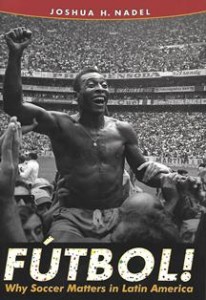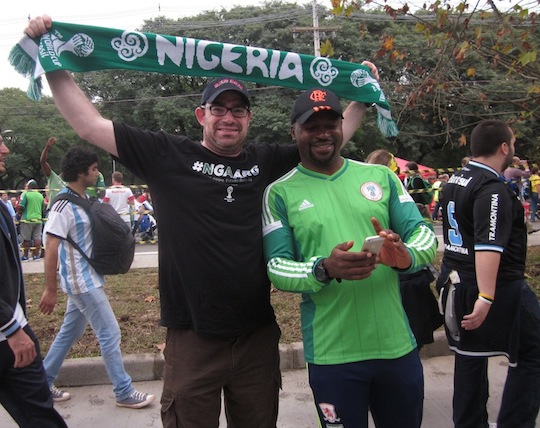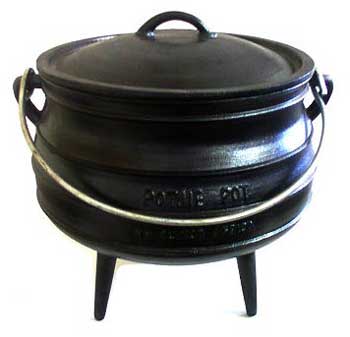 How does football shape national narratives in Latin America? Why is the game so closely tied to masculinity and femininity? How can studying fútbol advance our understanding of Latin American history? These and other questions were part of the Football Scholars Forum recent discussion of Joshua Nadel’s Fútbol!: Why Soccer Matters in Latin America.
How does football shape national narratives in Latin America? Why is the game so closely tied to masculinity and femininity? How can studying fútbol advance our understanding of Latin American history? These and other questions were part of the Football Scholars Forum recent discussion of Joshua Nadel’s Fútbol!: Why Soccer Matters in Latin America.
The author, an assistant professor of Latin American and Caribbean history at North Carolina Central University, shared his experience of writing a book that the publisher expected to have cross-over appeal. In addition to tackling questions from the thirteen participants online, Nadel also suggested future directions for research on Latin American fútbol.
An audio recording of the event can be downloaded here.
The next gathering of the Football Scholars Forum will be on March 26 for a paper on Zambian football by Hikabwa Chipande, a PhD candidate in African history at Michigan State University. For more information about this event, please contact Alex Galarza.
Tag: Honduras

Guest Post by *Derek Charles Catsam
I recently returned from the 2014 World Cup in Brazil. It was a remarkable experience in a beautiful country. Everywhere we went people were gracious, joyful hosts. We ate fantastic churrasqueira (the Brazilian barbecue that will fuel my dreams for months) and drank among friends. The games were tremendous, the colorful visiting fans (with special mention to the dancing, chanting, singing, drinking Argentine throngs) made the World Cup the event that it is. The protests were more intermittent than expected. But the issues raised were as valid as ever.
I was based in Porto Alegre in the state of Rio Grande do Sul on Brazil’s southern border with Uruguay and Argentina. I attended four matches in Estadio Beria-Rio, the home of Sports Club Internacional: France-Honduras, Algeria-South Korea, Argentina-Nigeria, and the round of 16 match pitting eventual champions Germany against the Algeria. With 32 teams competing, the first two weeks of the World Cup are an unparalleled Carnival of Nations. Porto Alegre was in the midst of a Brazilian winter, hardly freezing, but occasionally raw and damp. The bikinis and swimming shorts that many of you saw as the regular going-to-commercial interludes on ESPN were many hundreds of miles north.
The tournament, which equaled the most goals (171) ever scored in a World Cup, was spectacularly entertaining and Germany is certainly a worthy champion. But once the confetti cleared, the last drinks were downed, tourists returned home, and Brazilians shook off the shameful way the Seleção flamed out of the tournament (and I do not for one second believe that the presence of Thiago Silva and Neymar against Germany and the Netherlands would have made much difference—Brazil’s problems were systemic) a familiar question looms: Was hosting the World Cup worth it?
Silver Underestimates Slovakia
Nate Silver is a box score genius. Nate Silver can call states, counties and wards like no other. But can Nate predict the winner of the World Cup?

Some of our global readers may find Nate Silver’s statistical offerings on “soccer” other worldly. Who is this four eyed American running the numbers on our game, I hear some of you dismissively spit. But can it be true one can only understand football if one starts drinking about eleven in the morning in a backstreet pub or bar in the vicinity of some corrugated contraption called a football ground. There has to be a middle ground. Nate Silver deserves the utmost respect. But you know among the remnants of ale, chips, pies and gravy that your guts can tell you something Nate’s numbers cannot.
Nate has promised to delve into football realm for some time. His arrival is most welcome. FIFA has improved its ranking system. FIFA’s seeds were the deserving form teams (though Silver has a minor objection preferring Portugal over Italy.) Still, Silver’s Soccer Power Index is the Snow Leopard of upgrades. It is on paper at least, the best ranking of international football.
But can the running of fun football statistics really predict winners with such scientific certitude. How can it, for example, adjust for the emergence of a Uruguayan midfield prodigy, the determination African Disapora players from random places like Honduras to perform at that higher level, or the late call up of that left back capable of both the beautiful football and the most horrendous crimes ever witnessed on a football field, where one No.3’s mis-kick can find the back of the net or break Beckham’s leg in three places, not to mention all the other shenanigans?
Pot Observations
TEN POT OBSERVATIONS.

1. FIFA got the seedings right. Pot 1 seeds earned their ranking. France did not. France’s final appearance was four years ago.
2. Chile, Paraguay and Uruguay have come out of the pot alignment better than most. Each of the smaller South American nations will avoid the big five African qualifiers in the 1st Round.
3. Argentina and Brazil cannot avoid the African qualifiers from Pot 3. The seeds for two potential Groups of Death have now been sown. Has FIFA put Brazil at risk for an early bath?
4. The most frightening Group of Death would be: Brazil, Mexico, Côte d’Ivoire and Portugal.
5. The dark horse of Pot 2 is Honduras.